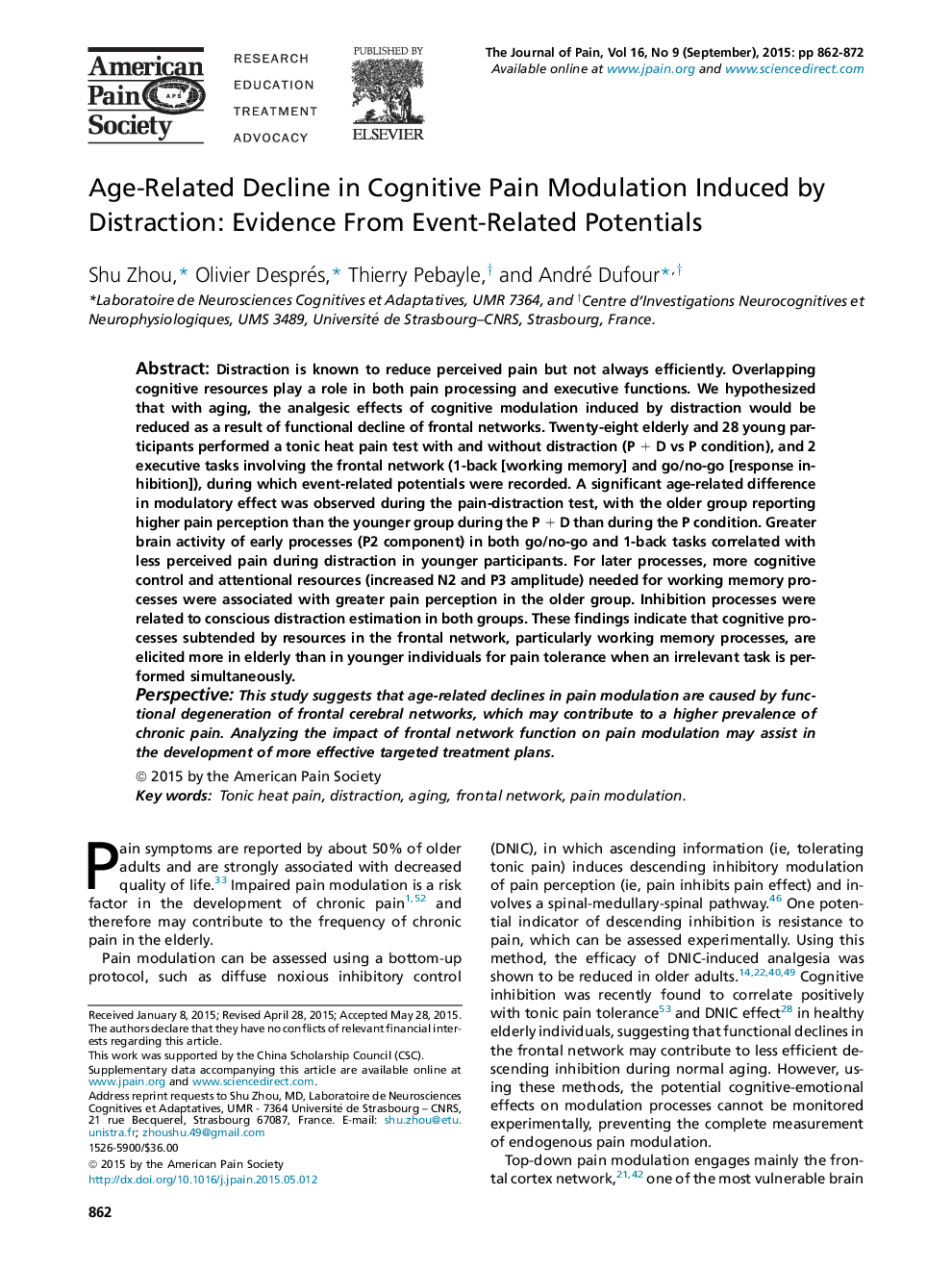| Article ID | Journal | Published Year | Pages | File Type |
|---|---|---|---|---|
| 2733620 | The Journal of Pain | 2015 | 11 Pages |
•Pain modulation induced by a simple cognitive task worsened rather than ameliorated pain in elderly participants.•Increased pain perception during distraction in elderly participants is associated with limited working memory capacity with aging, which may result in insufficient resources to “control pain.”•Inhibition processes were related to conscious distraction estimation in both elderly and younger groups.•Functional degeneration of frontal cerebral networks may contribute to the age-related decline in cognitive pain modulation.
Distraction is known to reduce perceived pain but not always efficiently. Overlapping cognitive resources play a role in both pain processing and executive functions. We hypothesized that with aging, the analgesic effects of cognitive modulation induced by distraction would be reduced as a result of functional decline of frontal networks. Twenty-eight elderly and 28 young participants performed a tonic heat pain test with and without distraction (P + D vs P condition), and 2 executive tasks involving the frontal network (1-back [working memory] and go/no-go [response inhibition]), during which event-related potentials were recorded. A significant age-related difference in modulatory effect was observed during the pain-distraction test, with the older group reporting higher pain perception than the younger group during the P + D than during the P condition. Greater brain activity of early processes (P2 component) in both go/no-go and 1-back tasks correlated with less perceived pain during distraction in younger participants. For later processes, more cognitive control and attentional resources (increased N2 and P3 amplitude) needed for working memory processes were associated with greater pain perception in the older group. Inhibition processes were related to conscious distraction estimation in both groups. These findings indicate that cognitive processes subtended by resources in the frontal network, particularly working memory processes, are elicited more in elderly than in younger individuals for pain tolerance when an irrelevant task is performed simultaneously.PerspectiveThis study suggests that age-related declines in pain modulation are caused by functional degeneration of frontal cerebral networks, which may contribute to a higher prevalence of chronic pain. Analyzing the impact of frontal network function on pain modulation may assist in the development of more effective targeted treatment plans.
